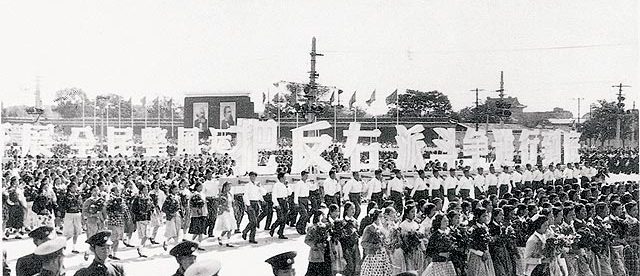How Chairman Mao Turned Freedom into Oppression

The right to dissent is a fundamental precept of free societies. When addressing the relative freedom (or lack thereof) in communist nations, this often comes up. Censorship is the norm and dissidents tend to vanish. And that was certainly the case in China under the regime of Mao Zedong. During his nearly 27 years in power, there was rarely a chance for Chinese citizens to voice their objections without fear of reprisal.
Rarely, but not never. There was a brief exception, a time period in which Chinese people could safely petition their government for redress of their grievances — or so it seemed.
When the communists took control of China in 1949, they instituted a political and economic system that was controlled centrally and without a countervailing political force to keep it in check. This centralized government wasn’t the byproduct of a long, national conversation nor an election — it was the result of a years-long civil war. At first, the Communists didn’t appreciate dissent; why let people speak freely if it means risking losing control?
But Mao wasn’t content with just winning control; he wanted to win hearts and minds, as well. So in 1956 and into 1957, he decided to invite suggestions from literally anyone — if you had an idea for how to make China a better place, he wanted to hear it. On February 27, 1957, he published a speech titled “On the Correct Handling of the Contradictions Among the People,” available here, which outlined his dream. Specifically, he said “Let a hundred flowers blossom, let a hundred schools of thought contend,” giving this policy a name: the Hundred Flowers Campaign.
The people, at first, exhibited some skepticism, but it quickly abated. “Soon,” as Smithsonian reported, “writers, lawyers, academics and scientists began speaking out, criticizing party cadres for meddling and obstructing important work. Students began protesting low standards of living, pointing out the hypocrisy of corrupt party members enjoying privileges at the expense of the workers.” The New York Times went even further: “Unfortunately for Mao, the complaints were directed not only at shortcomings in the political, economic and intellectual life of China, but at the Communist Party as an entity, and at Mao himself as an authoritarian and incompetent leader.”
That wasn’t the feedback Mao was after, and he didn’t take too kindly to the dissent. By July of 1957, he reversed course, re-instituting his regime of censorship. But he did so retroactively — if you were one of the people who spoke up during the Hundred Flowers Campaign, you weren’t exempt from persecution. Rather, those who dared speak out during the brief period of intellectual freedom were rounded up and punished. The purge, called the “Anti-Rightist Campaign,” came briskly; by the end of the year, the Communists rounded up an estimated 300,000 people and, by the end of 1959, that number rose to more than half a million. The penalties for their crime of honesty ranged from a formal censure to imprisonment or hard labor, and in some extreme cases, execution.
As the BBC reported, “academics still argue over the [Hundred Flowers] campaign” and Mao’s true motives. Some historians think Mao’s efforts to move toward liberalization were genuine at first, but he was unable to handle the criticism. But many suspect that a purge was Mao’s plan from the start and that the Hundred Flowers Campaign was a ruse designed to get his enemies to reveal themselves. If so, it worked.
Bonus fact: In recent weeks, China changed its constitution in a way which, effectively, lets President Xi Jinping rule the country indefinitely. Many Chinese citizens have tried to object, but doing so is difficult due to the regime’s ongoing efforts to censor speech, particularly online. Euphemisms and nicknames, therefore, often come into play — and ultimately, the censors then ban those nicknames. As a result, just a few weeks ago, China ended up banning images of Winnie the Pooh. Why? As the New York Times reported, “Mr. Xi is sometimes likened to the cartoon bear.” (Click here to judge for yourself.)
From the Archives: To Kill a Sparrow: Mao’s really bad pest control policy.
